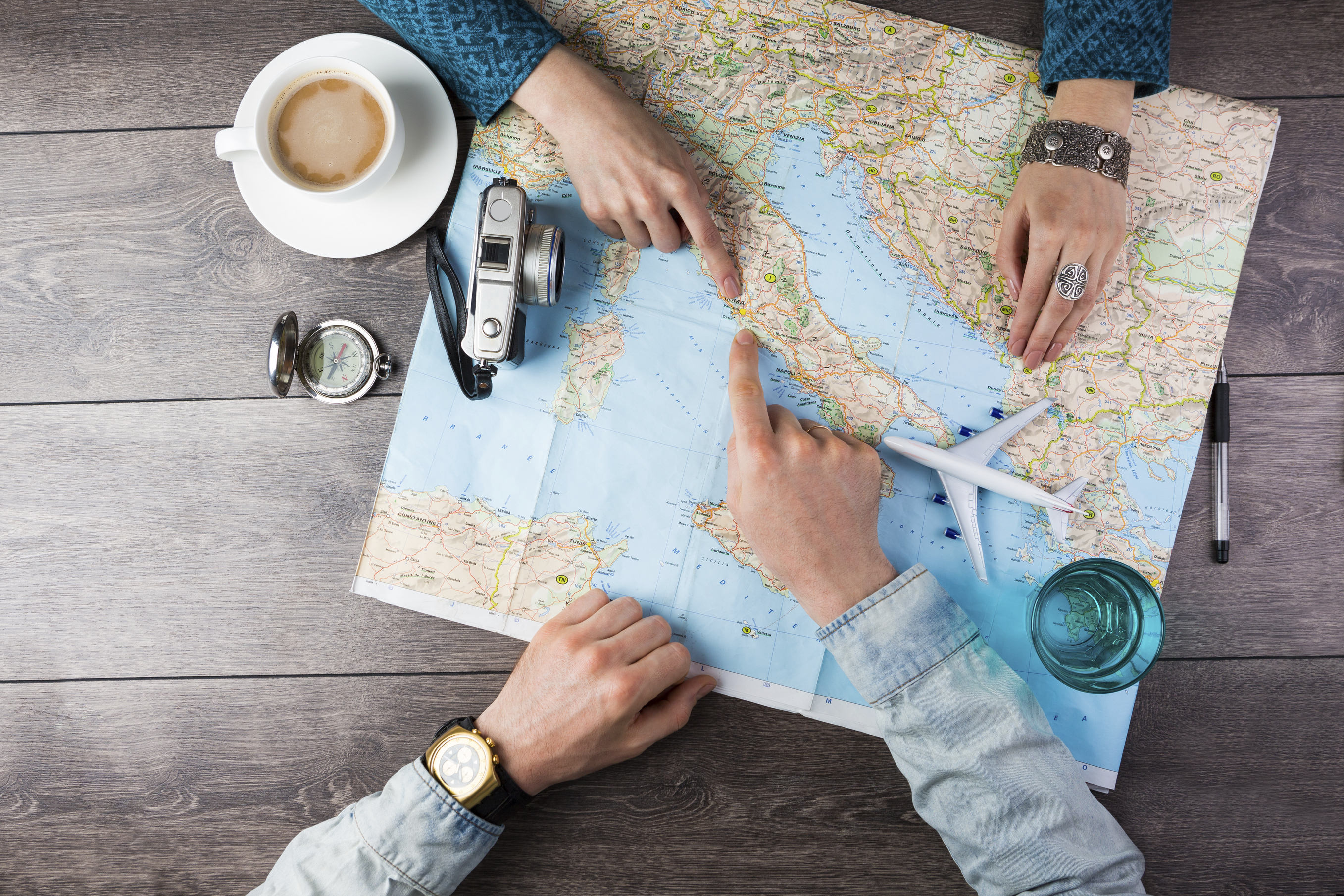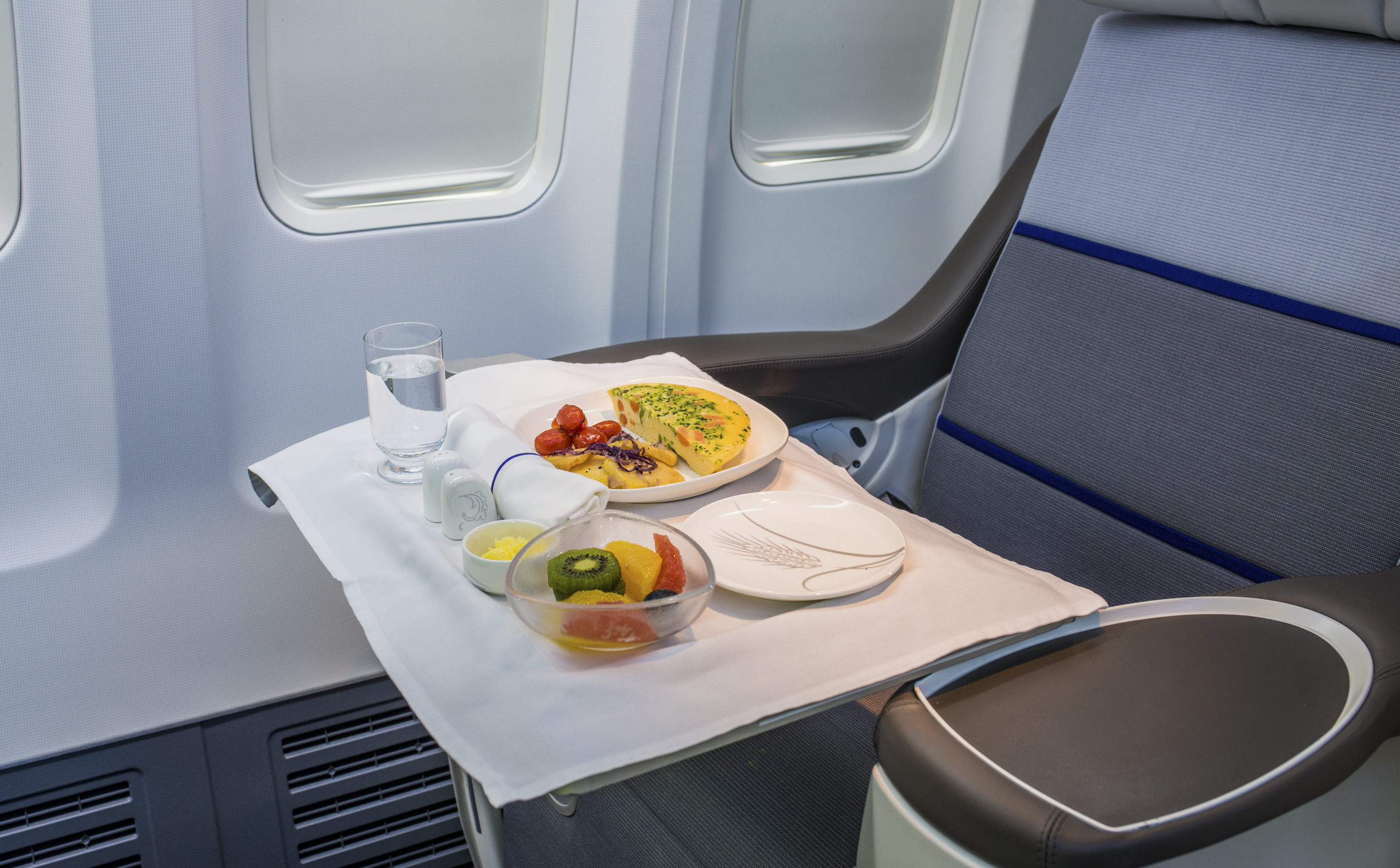Like many of us, I have been bitten by the travel bug. Wanderlust always leaves me searching, planning (and saving!) for another trip to a faraway destination. My travels have taken me to four different continents outside of North America with trips ranging from a resort trip with friends to volunteer trips, along with some solo travelling. I will admit that travelling with allergies can cause some extra work in terms of planning and involves extra vigilance while travelling but can allow you to experience exciting adventures while still staying safe.

Whenever I am beginning to plan a trip, I want to start with some basic research about my destination. While part of this involves looking into the culture, history, must-see destinations, best times to go, currency, and transportation options (the list goes on and on!), I also need to do my “allergy research.” When it comes to doing allergy research I want to know about the foods commonly eaten at my destination. If this is a resort, I want to know their ability to accommodate allergies and guarantee allergy safe options. If I am travelling to a specific country or region, I want to know what their traditional cuisine consists of and what allergens might pose a potential threat to my safety. For example, when I first travelled to Costa Rica I researched what common breakfast, lunch, and dinner meals consisted of and what names common dishes went by— needless to say I was quite reassured when I found out they commonly ate beans and rice (two safe food options for me) at EVERY meal.
While you might have found out what food options will be safest while travelling, I know personally what is most intimidating is communicating your allergies with locals who do not speak English. Not only will there be a language barrier but a cultural barrier can also exist as food allergies are widely unknown in some areas of the world. For example, when I travelled to Nepal, not only were most of the people I met generally unaware of food allergies but I had to be careful not to offend locals when I had to decline food due to my food allergies. My solution to this has been ordering “allergy cards” that are the size of a typical business card and state in any language, what my allergies are and that I cannot eat any food containing whatever specific allergens I order. I have also acquired cards that state, “I am having a medical emergency and need to be taken to the nearest medical facility.” I’ve personally used a company called “Select Wisely” and have had allergy cards ordered in: Spanish, German, Dutch, Nepalese, Swahili (you get the idea, you can order any language!). You could also try to get a native speaker to create a customized message for you. While these measures can help with staying safe while travelling with allergies, it is also necessary to use common sense and avoid risky behaviour while travelling. I also always try to pack convenient travel snacks for times when it is difficult to find allergy safe food options.
It’s also important not to forget about how you are getting to your destination and how your food allergies can come into play with this—in particular air travel. I always contact whatever airline I am using for my travels ahead of time and inform them of my food allergies. While many cannot fully accommodate allergies it is still important to know what their allergy policy is and how best they can accommodate you. I personally tend to play it on the safe side and bring my own food as I do not trust airline food.

Just as you should ensure you have all the appropriate immunizations and health checks for whatever location you are travelling to, it is also important to make sure your allergy medications are non-expired and that you have extras to bring with you. I always carry an auto-injector with me, so if I am travelling with friends or family I make sure they know how to use it, where I store it in my luggage and I also will give them an extra auto-injector in case of emergency. It’s important to know what medical services are available in the country and safe for travelers visiting the country and how to access these in an emergency. Just like any other traveler, health insurance is also a must!
Travelling is an extraordinary experience no matter the destination or length of your trip! There is no doubt a lot to consider when planning a trip to ensure you stay safe with your allergies. Feel free to comment below and share your travelling with allergies stories and how you prepare for allergy safe travel adventures!
Helpful links:
http://foodallergycanada.ca/allergy-safety/travelling/
Allergy Translation Cards
– Caitlyn P.
Tags: airlines, Caitlyn P., Food and Drink, Travel